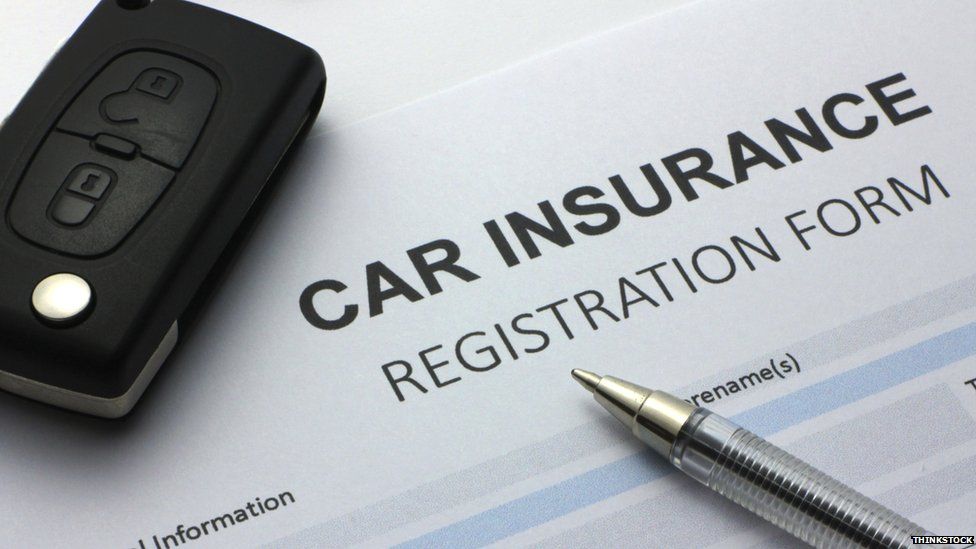Despite the auto insurance industry spending record amounts of money
on advertising designed to get motorists to switch carriers – or at the
least compare their rates against those of the competition – it’s not
enough to counteract consumers’ innate inertia.
A recent survey conducted for insuranceQuotes.com determined that the average U.S. driver has not changed insurance companies in 12 years, with about a quarter of them staying with the same carrier for more than 16 years. Thirty percent of drivers say they compare quotes every few years, while a stunning 36 percent never bother to look for the best rates.
And it’s not like motorists are missing the message. According to a study released by SNL Financial, Allstate spent a whopping $937.3 million in advertising to promote both the parent company and its Esurance division. Meanwhile, State Farm budgeted $843.9 million for advertising in 2014, with, as noted in a separate report by Kantar Media, GEICO dropping $1.43 million in ad dollars last year.
While the lack of apparent bang for the buck is obviously bad for multibillion-dollar insurance companies, it’s even worse for consumers, whose lethargy can be costing them considerable cash.

“Many people make the mistake of shopping only when they move or buy a
new car, but data shows that rates fluctuate even when you haven’t had
any major life changes,” says Laura Adams, insuranceQuotes.com‘s
senior analyst. “If you haven’t shopped for auto insurance since the
’90s, it’s probably safe to say that you’re not getting the best deal.”
The survey found that millennials and senior citizens are the least likely among all demographic groups to shop around for auto insurance. What’s more, 46 percent of motorists in the U.S. confessed to not knowing they can change their auto insurance carriers at any time. “Even if you paid for six months or a year of insurance upfront, the company will reimburse you if you choose to switch,” explains Adams.
To be sure, rates for a given driver can vary greatly from one carrier to another based on a wide range of personal circumstances, and it often comes down to risk management. Some companies may offer lower rates for single drivers in urban areas, while others might prefer to cover suburban families who own multiple cars and a house; some companies readily accept drivers with spotty driving records, while others might price them beyond reason – or reject them altogether – to maintain a pool of safe and sound policyholders.
According to the annual Insurance Shopping Study conducted by JD Power, drivers who switched insurers said they saved an average of $388 on annual premiums this year. Experts caution, however, that premium costs should be only one element consumers should consider when comparing car insurance carriers. “When looking exclusively at price, consumers may find the grass is not always greener,” says Valerie Monet, director of the insurance practice at J.D. Power. “Many customers are obtaining quotes and gathering information on insurer websites or through aggregators, but the day-to-day interactions they have with their insurer, especially if they have to file a claim, will be the ultimate moment of truth for the customer.”
To that end, the JD Power study determined that Erie Insurance provides the most satisfying shopping experience among auto insurers, with a score of 870 out of a perfect 1,000, followed by Ameriprise and The Hartford in a tie for second place (869), with CSAA Insurance Group in fourth (861) and Amica Mutual in fifth (850). In terms of claims satisfaction, a separate JD Power report determined that Amica Mutual ranks highest in auto claims satisfaction with an index score of 900, followed by Auto-Owners Insurance (879), State Farm (869), American Family (868), Auto Club of Southern California Insurance Group (867) and USAA (896).
Are Americans simply tuning out the message from the tsunami-like wave of car insurance ads battering them day and night, or have they developed rigor mortis when it comes to picking up the phone or a mouse to compare rates? It’s like the old days before remote controls, when less inclined viewers would watch a given television channel for hours at a stretch, not so much because of exemplary programming, but because they were simply too lazy to get up off the couch to change channels.
A recent survey conducted for insuranceQuotes.com determined that the average U.S. driver has not changed insurance companies in 12 years, with about a quarter of them staying with the same carrier for more than 16 years. Thirty percent of drivers say they compare quotes every few years, while a stunning 36 percent never bother to look for the best rates.
And it’s not like motorists are missing the message. According to a study released by SNL Financial, Allstate spent a whopping $937.3 million in advertising to promote both the parent company and its Esurance division. Meanwhile, State Farm budgeted $843.9 million for advertising in 2014, with, as noted in a separate report by Kantar Media, GEICO dropping $1.43 million in ad dollars last year.
While the lack of apparent bang for the buck is obviously bad for multibillion-dollar insurance companies, it’s even worse for consumers, whose lethargy can be costing them considerable cash.

Despite car insurance companies spending
billions of dollars on advertising, relatively few motorists actually
switch carriers or even bother to compare rates. (David Adame/AP Images
for Progressive Insurance Help Flo Try-Outs)
The survey found that millennials and senior citizens are the least likely among all demographic groups to shop around for auto insurance. What’s more, 46 percent of motorists in the U.S. confessed to not knowing they can change their auto insurance carriers at any time. “Even if you paid for six months or a year of insurance upfront, the company will reimburse you if you choose to switch,” explains Adams.
To be sure, rates for a given driver can vary greatly from one carrier to another based on a wide range of personal circumstances, and it often comes down to risk management. Some companies may offer lower rates for single drivers in urban areas, while others might prefer to cover suburban families who own multiple cars and a house; some companies readily accept drivers with spotty driving records, while others might price them beyond reason – or reject them altogether – to maintain a pool of safe and sound policyholders.
According to the annual Insurance Shopping Study conducted by JD Power, drivers who switched insurers said they saved an average of $388 on annual premiums this year. Experts caution, however, that premium costs should be only one element consumers should consider when comparing car insurance carriers. “When looking exclusively at price, consumers may find the grass is not always greener,” says Valerie Monet, director of the insurance practice at J.D. Power. “Many customers are obtaining quotes and gathering information on insurer websites or through aggregators, but the day-to-day interactions they have with their insurer, especially if they have to file a claim, will be the ultimate moment of truth for the customer.”
To that end, the JD Power study determined that Erie Insurance provides the most satisfying shopping experience among auto insurers, with a score of 870 out of a perfect 1,000, followed by Ameriprise and The Hartford in a tie for second place (869), with CSAA Insurance Group in fourth (861) and Amica Mutual in fifth (850). In terms of claims satisfaction, a separate JD Power report determined that Amica Mutual ranks highest in auto claims satisfaction with an index score of 900, followed by Auto-Owners Insurance (879), State Farm (869), American Family (868), Auto Club of Southern California Insurance Group (867) and USAA (896).
Are Americans simply tuning out the message from the tsunami-like wave of car insurance ads battering them day and night, or have they developed rigor mortis when it comes to picking up the phone or a mouse to compare rates? It’s like the old days before remote controls, when less inclined viewers would watch a given television channel for hours at a stretch, not so much because of exemplary programming, but because they were simply too lazy to get up off the couch to change channels.




